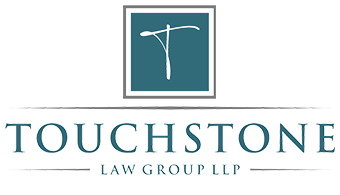GST on Purchases of Real Property
The Goods and Services Tax (GST) is a tax at the federal level that is charged on the sale of most products and services in Canada, including real estate. As defined in the Excise Tax Act, “the entering into the agreement shall be deemed to be a supply of the property or service made at the time that the agreement is entered into”. Accordingly, the default position for every Contract of Purchase and Sale is that it is a taxable supply, and therefore subject to GST.
Of course, there are exceptions to this general rule. Perhaps the most common exception that would be seen in the ordinary course of real estate transactions is the sale of a previously occupied residential complex that has not been substantially renovated (also known more generally as “used residential housing”). A sale of personal use land by an individual or a trust that is a sale not in the course of business, a sale of personal use farmland to a related individual, and a sale by a charity, non-profit organization, or other public service organization are all also transactions that are frequently exempt from GST.
Some common examples of situations where GST is payable are on the sale of a newly constructed house or condo by a builder or developer, a sale of new or non-used residential property, a sale of substantially renovated housing, or a sale of short-term rental housing (for example, Airbnb or VRBO).
If the sale does not fall into one of the exemptions and GST is therefore payable, the question then becomes who is responsible for paying GST, and if GST is included in the purchase price or payable in addition to the purchase price.
Generally, when purchasing a newly built property from a developer, the contract will state that GST is in addition to the purchase price and is payable by the buyer. The buyer must keep that in mind when entering into the contract and securing financing, as it will impact the total amount payable on the closing date.
A GST new housing rebate may allow an individual purchaser to recover some of the GST paid for a new or substantially renovated house that is going to be used as the purchaser’s, or their relatives, primary place of residence. Note that the new housing rebate is not available to a corporation or a partnership. New home buyers can apply for a GST rebate if the purchase price is $350,000 or less. The rebate is equal to 36% of the 5% GST, to a maximum rebate of $6,300. There is a proportional GST rebate for new homes costing between $350,000 and $450,000, and no rebate is available for homes priced at $450,000 and above.
It is often less clear when purchasing a property that is or may be subject to GST from a private seller rather than a developer. To avoid any confusion, the contract should always expressly state whether GST will be included in or in addition to the purchase price, as well as who will be responsible for paying GST, if applicable.
We recommend a clause such as the below:
The Buyer and the Seller have been advised to seek professional advice regarding any questions about GST liability, exemptions or the right to apply for a rebate. The Seller represents that the Property is considered used residential housing and therefore GST is not applicable. In the event that GST applies to this transaction, the Seller is responsible for the payment of the GST, which shall be included in the Purchase Price.
By including a clause such as the above, it avoids any potential confusion or conflict near the closing date if the sale is subject to GST and if so, who is responsible for paying GST.
If you have any questions regarding GST, please contact one of our lawyers practicing in the area of real estate. In addition, we recommend seeking the advice of an accountant regarding the applicability of GST to your real estate purchase or sale.
Author: Jane Otterstrom
This information is general in nature only. You should consult a lawyer before acting on any of this information. This information should not be considered as legal advice. To learn more about your legal needs, please contact our office at (250)448-2637 or any of our lawyers practicing in the area of real estate law at the following:





